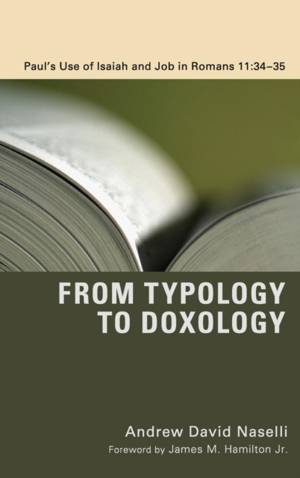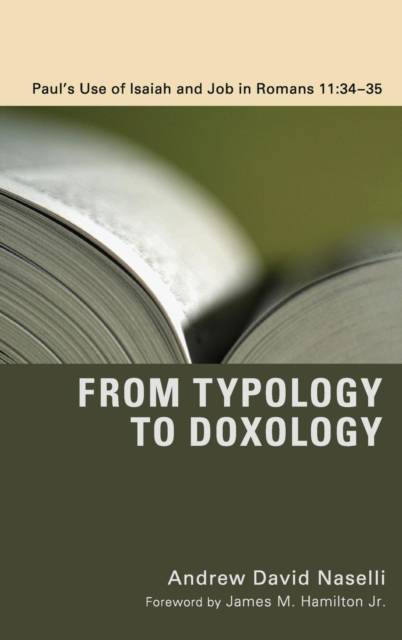
- Retrait gratuit dans votre magasin Club
- 7.000.000 titres dans notre catalogue
- Payer en toute sécurité
- Toujours un magasin près de chez vous
- Retrait gratuit dans votre magasin Club
- 7.000.0000 titres dans notre catalogue
- Payer en toute sécurité
- Toujours un magasin près de chez vous
From Typology to Doxology
Paul's Use of Isaiah and Job in Romans 11:34-35
Andrew David Naselli
Livre relié | Anglais
66,95 €
+ 133 points
Format
Description
At the end of Romans 11, Paul quotes both Isaiah and Job. As with other New Testament uses of Old Testament texts, this raises several questions. What is the context of these Old Testament passages? How are they used in other Jewish literature? What is Paul's hermeneutical warrant for using them in Romans 11? What theological use does Paul make of them? How, if at all, does their use in Romans 11 contribute to the broader discussion on the use of the Old Testament in the New? In addressing these questions, this book reveals a remarkable typological connection that climaxes in the doxology of Romans 11:33-36, exalting God's incomprehensibility, wisdom, mercy, grace, patience, independence, and sovereignty.
Spécifications
Parties prenantes
- Auteur(s) :
- Editeur:
Contenu
- Nombre de pages :
- 214
- Langue:
- Anglais
Caractéristiques
- EAN:
- 9781498262088
- Date de parution :
- 12-07-12
- Format:
- Livre relié
- Format numérique:
- Genaaid
- Dimensions :
- 152 mm x 229 mm
- Poids :
- 453 g

Les avis
Nous publions uniquement les avis qui respectent les conditions requises. Consultez nos conditions pour les avis.






